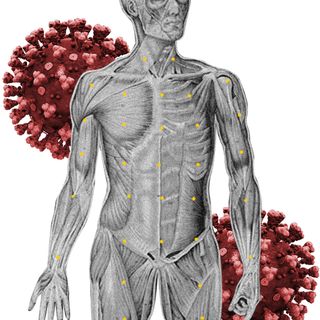Last week, the UN awarded Kerala for its “outstanding” contribution towards preventing and controlling the spread of non-communicable diseases (NCDs).
NCDs include heart disease, stroke, cancer, diabetes, and chronic lung disease, and are believed to be collectively responsible for the deaths of 41 million people each year — amounting to 71% of all deaths worldwide. Announced by WHO Director-General, Tedros Adhanom Ghebreyesus, the UN Interagency Task Force Award was given to the Department of Health and Family Welfare in Kerala, along with health ministries of the UK, Russia, Mexico, and Nigeria, among others. In India, 1 in 4 people has a risk of dying from an NCD before they reach the age of 70.
Research suggests that ever since Kerala achieved statehood in 1956, it began investing in infrastructure to create a robust healthcare system, and rapidly expanded the number of medical facilities, hospital beds, and doctors — leading to the number of doctors increasing from 1200 to 36,000 between 1960 to 2010. And yet, the rise of NCDs continued to be one of the biggest challenges for the state. This led to Kerala inaugurating a state-run NCD-control program, Amrutham Arogyam, in the last decade. Under the program, the state screens its population above 30 years of age for NCDs, and provides free supply of medicines for all detected with NCDs. Another important aspect of the program educating the population about the benefits of exercising, and eating healthy, in addition to sensitizing them on the ill effects of smoking.
Related on The Swaddle:
Bhilwara Provides India’s Model for Covid19 Containment
“The state government has arranged facilities from the basic public health centres to hospitals at all levels to treat the lifestyle diseases. We were able to control the death rate during the Covid19 period as we were able to focus on the NCDs,” K.K. Shailaja, Kerala’s Health Minister, said. And indeed, in April, Kerala had the lowest mortality rate in India, among states that had recorded deaths from Covid19. In fact, in June, the UN had honored Shailaja for her efforts to tackle the pandemic through the state’s strategy of aggressive testing, contact tracing and quarantining patients.
And, Kerala’s healthcare victories don’t end there. For the present award, Kerala’s lung disease control program, cancer treatment program, and paralysis control program were also considered. And, this May, bringing its Infant Mortality Rate (IMR) to single digits, the state also achieved the UN’s sustainable development goal for IMR. And, earlier this month, the UK’s Prospect magazine put Shailaja at the top of a list of the World’s Top 50 Thinkers 2020.
“By drawing strengths on the decentralised public health delivery systems in the state, we activated our entire surveillance network the very next day of WHO’s statement of caution on a respiratory virus of pandemic potential,” Shailaja had stated at UN’s virtual conference in June, where she was invited on a panel of of 10 other world leaders, including Ghebreyesus, and Antonio Guterres, UN Secretary General.




